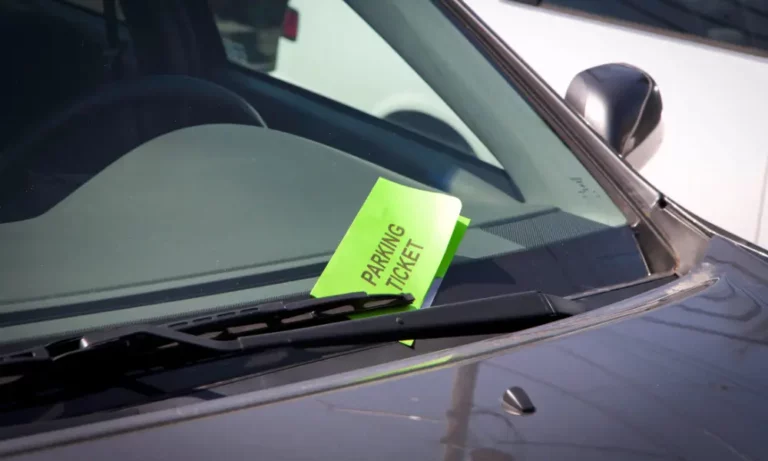Receiving a parking ticket can be frustrating, but it’s important to address it promptly. Ignoring your parking ticket often leads to increased fines, and in some cases, your vehicle could be towed or impounded. Timely payment saves you from additional penalties and keeps your driving record in good standing.
Immediate Consequences of Unpaid Parking Tickets
If you’ve ever shrugged off a parking ticket, considering it a minor nuisance, be aware that its repercussions can swiftly escalate. Ignoring these tickets leads to immediate consequences that could significantly affect your finances and mobility.
Additional Late Fees
For starters, your parking ticket comes with a deadline. Miss that, and additional late fees are tacked on to the original fine. This means that a $30 ticket can quickly inflate to a much heftier sum. For example, in some cities like New York, ignoring a parking ticket for more than 90 days could add an extra $60 in penalties.
Penalties and Civil Assessments
Beyond late fees, ignoring a parking ticket often results in penalties and civil assessments. This can include an increased financial burden as your debt to the city escalates. In severe cases, these penalties might involve legal actions with a potentially larger financial and personal impact. Such actions can include being called to court to address the unpaid balance.
Vehicle Booting
Your vehicle itself isn’t immune to the consequences of unpaid tickets. It’s possible for your car to be booted, which means a locking device is placed on the wheel preventing you from driving it. The removal of the boot comes with its own fees, and until you settle your dues, your vehicle is effectively immobilized.
Long-Term Implications for Nonpayment
Failing to pay a parking ticket can have more serious consequences than you might expect. The fines tend to increase over time, and the impact can extend to your credit score, driving record, and even your vehicle’s legal status.
Credit Score Impact
If you ignore parking tickets, the city may escalate the issue to a collection agency. Once a ticket is in collections, it may be reported to credit bureaus, which could damage your credit score. A lower credit score affects your eligibility for loans and the interest rates you receive.
Driving Record and Insurance Rates
Unpaid parking tickets themselves often do not directly affect your driving record. However, if they lead to the suspension of your vehicle registration or your driver’s license, this could catch the attention of your insurance provider. Higher insurance premiums often follow driving record blemishes.
Vehicle Registration and Renewal Issues
Your ability to renew your vehicle registration can be hindered by outstanding parking fines. Some states won’t allow renewal until all unpaid tickets are settled. This can leave you unable to legally drive your vehicle, leading to even more fines and complications.
Legal Repercussions
If you’re facing an unpaid parking ticket, it’s important to address it promptly. Ignoring it can lead to serious legal consequences, such as license suspension, warrants for your arrest, and court proceedings that might require a judge’s intervention.
License Suspension
Your failure to pay a parking ticket can result in a suspension of your driving license. After a certain period, or accumulating multiple unpaid tickets, the local Department of Motor Vehicles (DMV) might suspend your driving privileges. This often means you’ll have to settle the outstanding fines and possibly pay additional reinstatement fees to get your license back.
Arrest Warrants and Bench Warrants
If you let your parking ticket go unpaid, a local court may issue a bench warrant for your arrest. While parking violations are typically civil matters, ignoring a ticket escalates the issue to a criminal level. A warrant can be issued if you fail to appear in court, prompting the police to take action, which could potentially lead to your arrest.
Court Involvement
Ignoring your parking ticket will likely result in court involvement. You might be summoned to appear before a judge. At this stage, your ticket is no longer just a fine—it becomes part of your official court record. Depending on your local laws, additional penalties, such as increased fines or community service, might be imposed by the court.
Administrative Procedures
When you don’t pay a parking ticket, it sets into motion a series of administrative procedures that can lead to increased debt due to collection fees and can even impact your state tax refund.
Notice of Unpaid Parking Violations
Initially, you’ll receive a Notice of Unpaid Parking Violations. This is a formal notification reminding you of the parking tickets you have accrued and the necessity to settle them. The notice will typically outline the original fine and any additional late fees that may have been added to your balance due to delayed payment.
Debt Collection Process
If you do not respond to the initial notices, your debt may be referred to a collection agency. Collection agencies specialize in pursuing unpaid debts, and their involvement may mean additional collection fees are tacked onto your original parking fine, increasing the amount you owe.
State Involvement and Tax Refunds
In some instances, the state may intervene in the debt collection process. Should you have an outstanding debt from unpaid parking violations, the state might withhold your state tax refund to satisfy the debt. This means a portion or all of your tax refund could be redirected to cover your unpaid parking tickets and any associated fees.
Strategies to Resolve Unpaid Parking Tickets
If you’ve accumulated unpaid parking tickets, it’s important to address them promptly to avoid additional fines and legal troubles. Let’s explore some effective strategies that can help you manage and resolve these tickets.
Payment Plans and Options
Many municipalities understand that paying for a parking ticket can be a financial burden. Check if your local court offers payment plans that would allow you to pay off the ticket in installments. It’s worth reaching out to see if reduced fines are offered for early payment or financial hardship. Some areas may also have an app that can facilitate easier payments or keep track of due dates.
Contesting a Parking Ticket
Believe you received a ticket unfairly? It’s your right to contest a parking ticket. Gather any evidence that supports your case, such as photos or witness statements. Be sure to check how to dispute through the specific channel provided, whether it’s online, through an app, or in person. Keep an eye on contestation deadlines; submitting a dispute after the due date can invalidate your appeal.
Seeking Legal Advice
When it feels overwhelming to tackle unpaid parking tickets alone, consider seeking legal advice. A legal expert who specializes in traffic laws can provide guidance on your situation. They might help you understand the consequences of unpaid tickets, represent you in a local court, or find a resolution to resolve the problem. Sometimes, a professional’s advice might save you from larger penalties in the long run.
Conclusion
Paying attention to parking tickets is definitely in your best interest. If you overlook them, they have a way of becoming significantly more troublesome over time. Your original fine can increase with additional penalties, and you might find your car with a boot, or worse, towed away.
Here’s a quick checklist of potential consequences to keep top of mind:
- Late fees: Your fine can double or triple if unpaid within the specified time.
- Boot or towing: Accumulating tickets can lead to your vehicle being immobilized or removed.
- License suspension: In some regions, not addressing parking tickets can affect your driving privileges.
Remember, it’s simpler and less stressful to handle parking tickets promptly. It’s a quick process that keeps the hassle at bay and ensures you avoid any steep costs or legal troubles.



